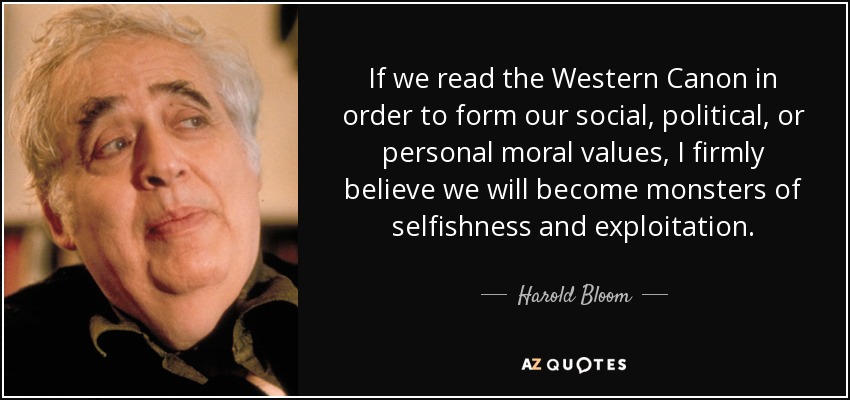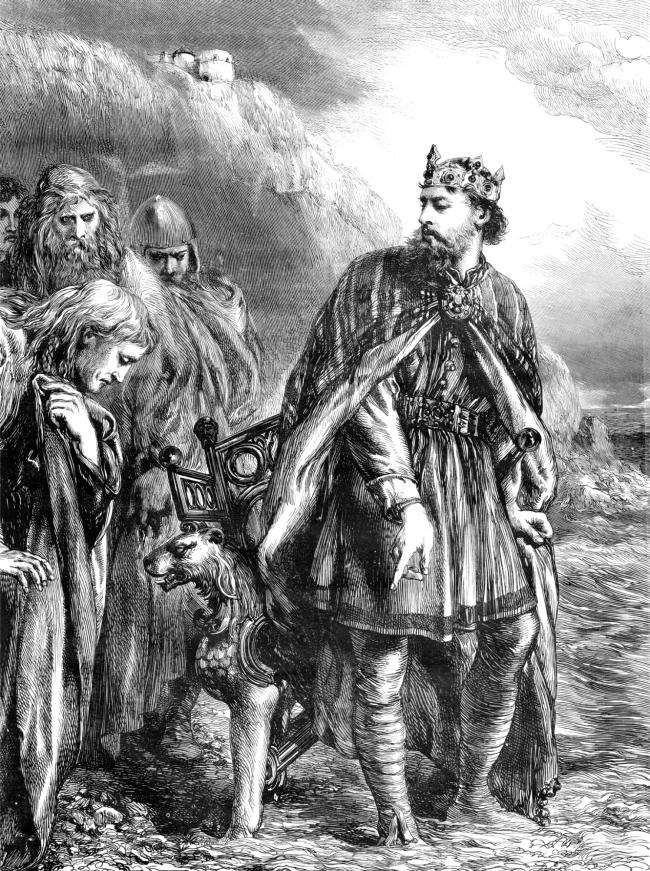All words, in every language, are metaphors.
And when many of the referents of those metaphors are inherently tied to previous works of literature, it's useful for the lector to have knowledge of those previous works.
Intertextuality: it's why the canon is useful.
1/11
And when many of the referents of those metaphors are inherently tied to previous works of literature, it's useful for the lector to have knowledge of those previous works.
Intertextuality: it's why the canon is useful.
1/11
Declaring a work to be "canonical" isn't a measure of the work's quality, morality, or superiority.
It is simply an assertion that knowledge of the work is useful for reading other parts of the culture.
2/11
It is simply an assertion that knowledge of the work is useful for reading other parts of the culture.
2/11
You can enjoy Simpsons S2E16 "Treehouse of Horror" without knowing anything about the works they're referencing.
But ... it adds an extra layer of enjoyment to catch the ways they subvert "To Serve Man" (Twilight Zone S3E24)
3/11
But ... it adds an extra layer of enjoyment to catch the ways they subvert "To Serve Man" (Twilight Zone S3E24)
3/11
We shouldn't think of the canon as a fixed list.
The "science fiction canon" of today is not the canon of the past.
If I made a reference to nine tailors in a story in 1950, people would get the Dorothy Sayers reference. Today, it would make no damn sense.
4/11
The "science fiction canon" of today is not the canon of the past.
If I made a reference to nine tailors in a story in 1950, people would get the Dorothy Sayers reference. Today, it would make no damn sense.
4/11
There are lots of terrible, terrible books that I'd argue are almost certainly parts of the canon at present.
Unfortunately, it would be difficult to argue that Ready Player One isn't now part of the cultural lexicon of SF.
(That *does not* mean anyone needs to read it.)
5/11
Unfortunately, it would be difficult to argue that Ready Player One isn't now part of the cultural lexicon of SF.
(That *does not* mean anyone needs to read it.)
5/11
Sadly, I don't think that anyone would suggest that Camp Concentration by Thomas Disch is part of the canon.
Any sly nod I made to Louis Sacchetti or to Camp Archimedes would probably confuse a lot of people.
That's not a slight on anyone who hasn't read it.
6/11
Any sly nod I made to Louis Sacchetti or to Camp Archimedes would probably confuse a lot of people.
That's not a slight on anyone who hasn't read it.
6/11
Since the canon is in a constant state of churn, the battles about it seem silly.
Why declare "we need to tear down the canon," when frankly the canon is always going to be constantly crumbling?
And those trying to keep the canon a fixed list are like King Canute.
7/11
Why declare "we need to tear down the canon," when frankly the canon is always going to be constantly crumbling?
And those trying to keep the canon a fixed list are like King Canute.
7/11
Is Heinlein part of the canon? Is Asimov? Is Campbell?
Probably.
I mean, people still make reference to their works, allude to their works, & write stories in dialogue with their works.
Doesn't mean you have to read their books (though some are worth your time).
8/11
Probably.
I mean, people still make reference to their works, allude to their works, & write stories in dialogue with their works.
Doesn't mean you have to read their books (though some are worth your time).
8/11
Some very good essays have been written about "personal canons," at Sarah Gailey's blog.
It's a great project, though I question the idea of a "personal canon."
The canon is the lingua franca of the genre. By its nature, the canon is about a shared experience of culture.
9/
It's a great project, though I question the idea of a "personal canon."
The canon is the lingua franca of the genre. By its nature, the canon is about a shared experience of culture.
9/
If I constantly make references to the TV show Counterpart, nobody would understand me.
As much as I love it, I can't make it part of the canon through force of will.
So the "personal" and the "canon" are in some ways mutually exclusive.
10/11
As much as I love it, I can't make it part of the canon through force of will.
So the "personal" and the "canon" are in some ways mutually exclusive.
10/11
Let's stop arguing in the weeds and creating reductive and prescriptivist lists of what "is canon," but focus more on the utility of canon.
Lists can be cultural concordances that help inform conversation about the genre, instead of tools to demean those who have read less.
END
Lists can be cultural concordances that help inform conversation about the genre, instead of tools to demean those who have read less.
END

 Read on Twitter
Read on Twitter



